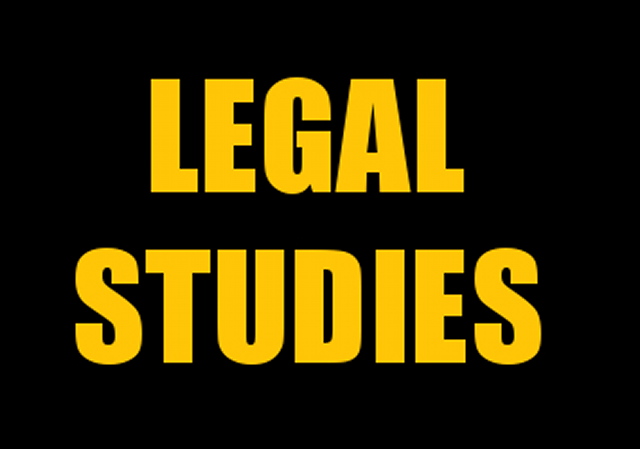U. Kansas Law School Pressured Students to Cancel Event With ADF Lawyer
“The student leaders were told several times to consider what this would do to their reputation.”

We recently noted that a Kansas Supreme Court judge resigned from his teaching position at this school. This is why. This incident earned the school the ‘Lysenko Award’ from Louis K. Bonham at Minding the Campus:
The 2022 MTC Lysenko Award: And the Winner Is…
Fall is in the air, which means it’s time to award the annual Minding the Campus Trofim Lysenko Award for the Suppression of Academic Speech (a Lysenko Award, for short).
As detailed in the inaugural award announcement, the Lysenko Award is named after Stalinist agronomist Trofim Lysenko. Like so many in today’s woke colleges and universities, Lysenko discarded the scientific method in favor of his own politicized theories (which happened to coincide with the Marxist concept of materialism). While his agricultural theories were neo-Lamarckian pseudoscience and, predictably, failed (causing millions to die from induced famines), Lysenko compounded matters by denouncing as an enemy of the state anyone who even questioned the veracity of his claims. With dissenters executed, sent to the gulags, or, at best, ruined, no one could point out the obvious: Lysenko’s theories were simply bunk. As a result, Lysenkoism remained official Soviet policy well into the 1960s, and Soviet biological science was set back decades…
In my view, our winner exemplifies the spirit of Lysenko. Lysenko was illiterate until he was thirteen, and his inability to grasp basic scientific principles led him to be regarded as a bad joke by actual scientists. (Lysenko’s sociopathic persecution of those who dared disagree with him may well have been because he knew he did not have the chops to defend his positions under traditional academic metrics.) Similarly, our winner is not a law professor or a legal scholar, and, from what I can see, she does not appear to have had any noteworthy accomplishments as a practicing attorney. Instead, she is the “Associate Dean for Academic and Student Affairs” for a law school and the functionary for the school’s “Faculty/Staff Diversity, Equity, Inclusion, and Belonging Committee.”
Recently, the law school’s Federalist Society chapter invited Jordan Lorence, senior counsel and director of strategic engagement at the Alliance Defending Freedom (ADF), to speak at a luncheon seminar on establishment clause law. Whether you agree or disagree with their positions, it is undeniable that ADF is a major player in the religious liberty space, and Lorence has successfully argued notable First Amendment cases before the Supreme Court. He and other ADF attorneys routinely speak at legal functions and law schools, including those at Harvard, Cornell, Duke, and many others.
However, because the ADF takes positions (often quite successfully) that the LGBT community disagrees with, it is not uncommon for activists to try and cancel or disrupt such presentations. When the Lorence seminar was announced at the law school in question, the usual cadre of activists went nuts, shrilly asserting that the ADF was a “hate group,” and that the seminar would promote “hate speech.” Aware of the tactics such activists have employed elsewhere, the Federalist Society chapter prudently asked the law school’s administration to provide event security.
Now, one might expect the “Associate Dean for Academic and Student Affairs” to be the adult in the room and to deal with this situation accordingly: arrange for security and remind protesters that there are rules against disrupting school events (and actually enforce such rules against violators). She might counsel law students upset with the ADF that dealing with positions (or people) you disagree with is a critical skill every lawyer must develop, that listening to such positions might better equip you to become an effective advocate for the opposing position, or even that free speech and debate is an essential part of higher education. (UCLA Law Professor Eugene Volokh has some excellent thoughts on how law school administrators should handle situations like this.)
But no. Instead, the entire student board of the Federalist Society chapter was summoned to a meeting with the administration. According to a now-former faculty member (more on him later):
At that meeting, [our winner and a professor] pressured the students to cancel the event. The administration representatives warned the student leaders that they needed to consider and understand the impact the event could have on them. The administration mentioned that at least five law professors had written to object. The students were told that even though it was their right to host the speaker, they needed to be warned about the impact of their choices. The student leaders were told several times to consider what this would do to their reputation.
To their credit, the students stood their ground, and the seminar went forward as scheduled.
 DONATE
DONATE
Donations tax deductible
to the full extent allowed by law.








Comments
“The student leaders were told several times to consider what this would do to their reputation.”
Now, U Kansas needs to consider what this has done to THEIR reputation.
They now have the reputation of being willing to stand up to intimidation. Any reputable law firm should want to hire them based on that alone.
.